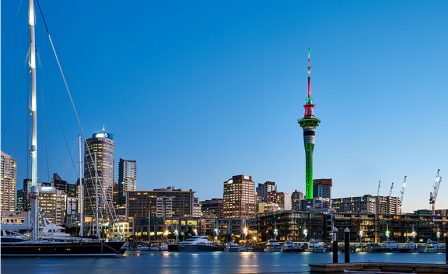Cost of living in New Zealand
New Zealand is a developed and not a cheap country. The cost of living is comparable with other developed countries in Europe, or, for example, with Australia. Prices for many products and even services can vary depending on the season.
We will try to cover a wide range of information about prices in New Zealand. How much do various products cost, how expensive is the Internet and electricity, what are the costs of transportation and entertainment, and how much does it cost to rent a house in Auckland and other cities in New Zealand. Prices are relevant for 2020.
Content
- Groceries
- Eating out
- Car and service
- Transport
- Cost of other services
- Entertainment
- Rent
- Utilities
- Salaries
- Cost planning and results
Cost of Groceries
You can buy groceries in large supermarket chains, which are available in big cities and almost all small New Zealand towns. Prices in supermarkets can differ from place to place, from season to season, and some supermarkets are more expensive than others. Nevertheless, we will arrange them in approximate order of decreasing prices on average: New World, Countdown, Pak n Save.
Next in line are Asian supermarkets, the prices in which may be slightly lower, though not always and the choice of goods there are more modest. And again, in the approximate order of price decrease: Fruit World, Tai Ping, Whenuapai, Dahua, Lim, Fresh and Save.
Smaller stores (corner stores) are also available, but groceries are usually more expensive in them. For example Four Square, Supervalue and various dairies.
Below is an approximate shopping cart for two people, if you shop in the Countdown supermarket, not the cheapest supermarket, in winter, that is, not in season for most crops. For the week, you’re looking at:
- Sausages – NZ $ 11,90 for 1 kg.
- Beefsteak – NZ $ 14,50 per 250 g.
- Mutton steak – NZ $ 13,50 for 220 g.
- Mince – NZ $ 11,90 for 400 g.
- Chicken drumsticks – NZ $ 6,79 per 1 kg.
- Chicken Breast – NZ $ 11 for 1 kg.
- Salmon fillet – NZ $ 23 for 500 g.
- Milk – NZ $ 3.90 for 2 litres.
- Yoghurt – NZ $ 5.30 per 1 kg.
- Butter – NZ $ 8 for 500 g.
- Sour cream – NZ $ 4,20 for 250 g.
- Cottage cheese – NZ $ 3,70 for 250 g.
- Cheese – NZ $ 10 for 500 g.
- Eggs – NZ $ 6 for 12 pieces
- Bread – NZ $ 3,50 per loaf.
- Tomatoes – NZ $ 8 for 1 kg.
- Cucumbers – NZ $ 5 for one large
- Capsicum – NZ $ 4 for 1 piece
- Carrots – NZ $ 3 for 1 kg
- Broccoli – NZ $ 3 per bundle
- Celery – NZ $ 7 per bush
- Potatoes – NZ $ 3,50 for 1 kg
- Avocado – NZ $ 2,60 for 1 piece
- Bananas – NZ $ 3 for 1 kg
- Mandarins – NZ $ 6 per 1 kg
- Oranges – NZ $ 5 per 1 kg
- Apples – NZ $ 4 for 1 kg
- Canned beans – NZ $ 1.5 per can
- Juice – NZ $ 3 for 1 litre
- Peanut butter – NZ $ 6.90 for 380 g
- Cookies – NZ $ 6,50 for 620 g
- Chocolate – NZ $ 5 for 250 g
- Everything for the bathroom – NZ $ 9 per week approximately
- Beer – NZ $ 22 for 12 bottles
- Wine – NZ $ 15 per bottle
- Total: approximately NZ $ 300 per week for two with a good varied and not very economical diet.
Cost of Eating Out
Eating in cafes and restaurants can vary a lot. The cost of lunch in a cafe, for example, can strongly depend on the place itself. Here are average examples of prices for different food options:
- Lunch at the food court in a shopping centre – NZ $ 17
- Lunch or dinner in an ordinary cafe – NZ $ 23
- Lunch or dinner at a restaurant – NZ $ 35 (main only)
- Pizza – NZ $ 15
- Coffee – NZ $ 5,50
Cost of Cars and Service
Cars in New Zealand – this is not a matter of status, but a necessary and practically mandatory item for a comfortable existence. The cost of cars here falls in relation to its age, and much more rapidly than, for example, in Russia. But the prices for car maintenance can be quite high.
- Toyota Corolla 2020 – NZ $ 30,000
- Toyota Corolla 2018 – NZ $ 20,000
- Toyota Corolla 2013 – NZ $ 12,000
- 91d petrol – NZ $ 3,10 for 1 litre (for July 2022)
- Inspection – NZ $ 72
- Registration – NZ $ 106 for 1 year
- Optional insurance – NZ $ 400-700 for 1 year
- Regular maintenance – NZ $ 270 for 1 year
Cost of Transport
In New Zealand, you can use public transport, such as buses and trains. Schedules, cost and routes can always be conveniently viewed, both in Google Maps and on the website of the transport service. The cost will depend on the distance.
- Travel by bus or train – NZ $ 5 per trip on average
- Taxi within the city – NZ $ 50 per trip on average
- Taxi from the airport – NZ $ 70 per trip on average
Cost of other services
Perhaps the most expensive thing in New Zealand is the payment for people’s labour. Therefore, the cost of services can be quite high, although it also depends on the level and quality. Here is an example of the most popular services.
- Hairdresser – NZ $ 40 for men, NZ $ 60 for a woman’s haircut
- Gym with swimming pool – NZ $ 22 per week
- Massage – NZ $ 80 per hour
- Manicure or pedicure – NZ $ 35 per procedure
- Nanny – from NZ $ 21,20 per hour
- Tutor – NZ $ 40 per hour
- Kindergarten – NZ $ 7,50 per hour + subsidies up to 20 hours per week are possible
Cost of Entertainment
In New Zealand, there is a lot of entertainment that is free, as well as that which costs. You can read more about it in our separate article. In addition, you can see the list of 100 different classes that can be found in Auckland. The cost of entertainment is limited only by your imagination and possibilities, but let’s just give the most popular examples.
- Day Excursions – NZ $ 100 per person
- Cinema – NZ $ 15 per ticket
- Zoo, museum, amusement park and other – NZ $ 25 per ticket
- A mug of beer or a glass of wine in a bar – NZ $ 11
- Rent a kayak or bicycle – NZ $ 55-80 for a day
Cost of Rent
Prices for rental housing in Auckland and other cities in New Zealand can vary greatly. You can read the description of the districts of Auckland, as well as about various cities on our website. In addition, you can see the prices and availability of rental housing by districts and cities on the interactive map.
More information about accommodation options can be found in our separate article, and here we will analyze the average examples of housing prices in Auckland. In Tauranga, Wellington, Hamilton, Christchurch and some other cities, the cost of housing can be 20-50% lower.
- Single room – NZ $ 200-350 per week
- Studio – NZ $ 360-450 per week
- Unit (part of a house with separate entrance) – NZ $ 460-550 per week
- Townhouse with 2 bedrooms – NZ $ 560-600 per week
- House with 2-3 bedrooms – NZ $ 500-800 per week
Read more about accommodation options in our article.
Cost of Utilities
Paying bills takes up a large part of the cost of living in New Zealand. The prices quoted, again, may vary, depending on the living conditions. Nevertheless, here are the average figures for a family of two people.
- Electricity – NZ $ 100-400 per month, and depending on your usage
- Internet – NZ $ 80-100 per month
- Water – NZ $ 20-40 per month
- Mobile communication – NZ $ 20-40 per month
- Total: approximately NZ $ 250-300 per month for two.
Average Salaries
The median or average salary in New Zealand is about NZ $ 58,836 per year before taxes and NZ $ 47,306 after taxes. As elsewhere, the salary will depend on the scope of your activity, on your work experience, on the level of competence, on the city, and also on the employer as a whole. More details about the chances for employment in a separate section. A common site for finding information about salaries and prospects in various specialities and areas.
Cost planning and results
Let’s sum up the cost of living in New Zealand for a couple. Considering comfortable conditions, separate housing and approximate other costs.
- Groceries – NZ $ 300 per week
- Dinner at a restaurant once a week – NZ $ 70
- Car costs – NZ $ 100 per week
- Services and entertainment – NZ $ 100 per week
- Rental housing – NZ $ 450 per week
- Bills – NZ $ 100 per week
- Total: approximately NZ $ 1120 per week or NZ $ 58,240 per year.
Thus, the usual average salary of one person may not be enough, and for a more or less comfortable stay of a couple in a beautiful and safe country by the sea, it will either be necessary to cut expenses, or earn more, or work for two family members. At the same time, many manage to save and spend much less than these amounts, not losing out too much in the quality of life: flatting with others, buying groceries in inexpensive supermarkets, keeping other expenses in tighter control.
Wage growth and the work of two family members significantly increase your earnings, but our desires grow with them. We recommend that you carefully approach the issue of financial planning. For convenience, you can use various online resources, for example, the budget planner on the site Sorted.
Contact Kiwi Education and we will answer all your questions.



